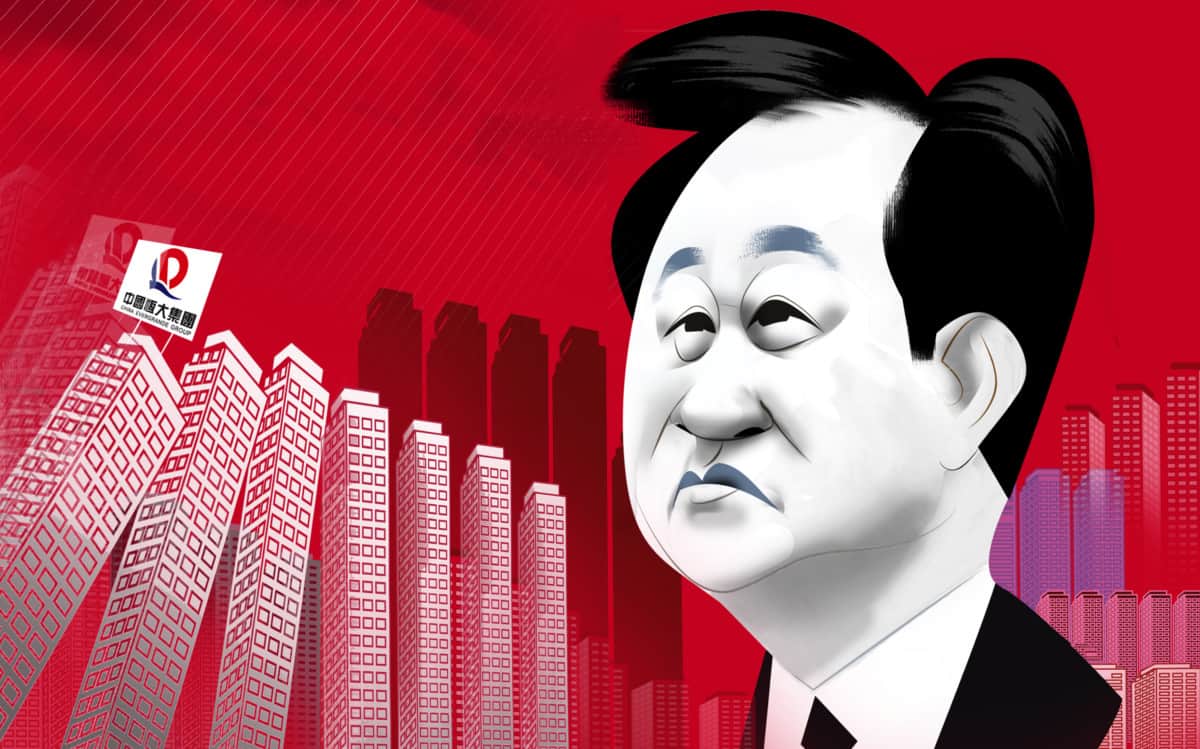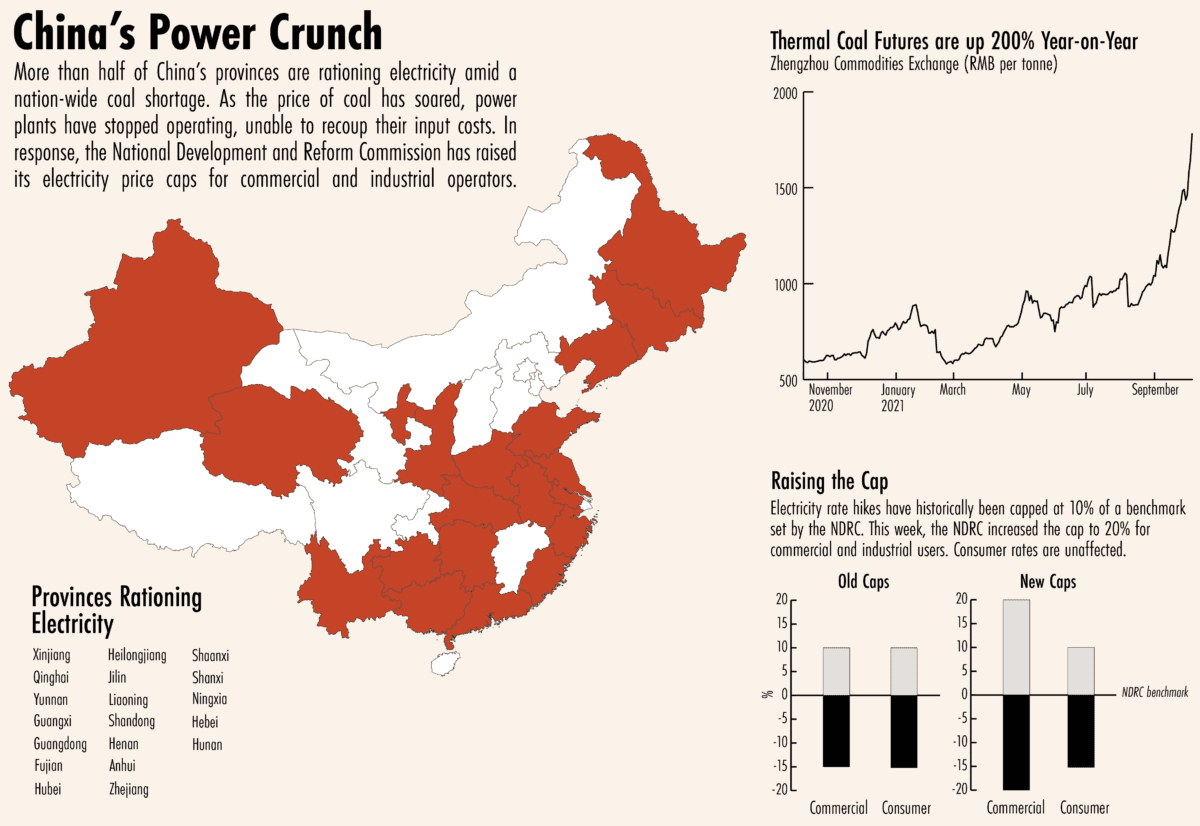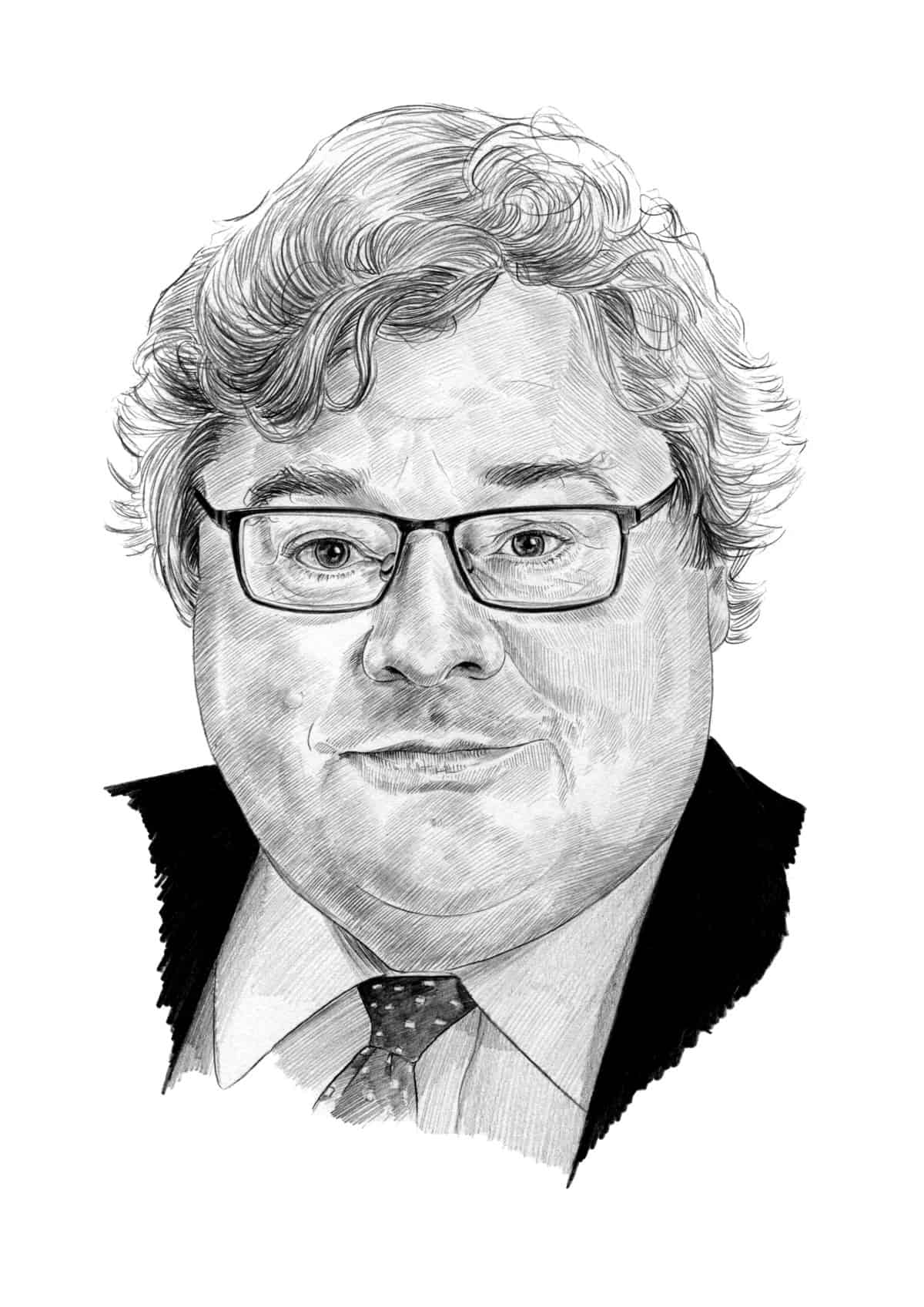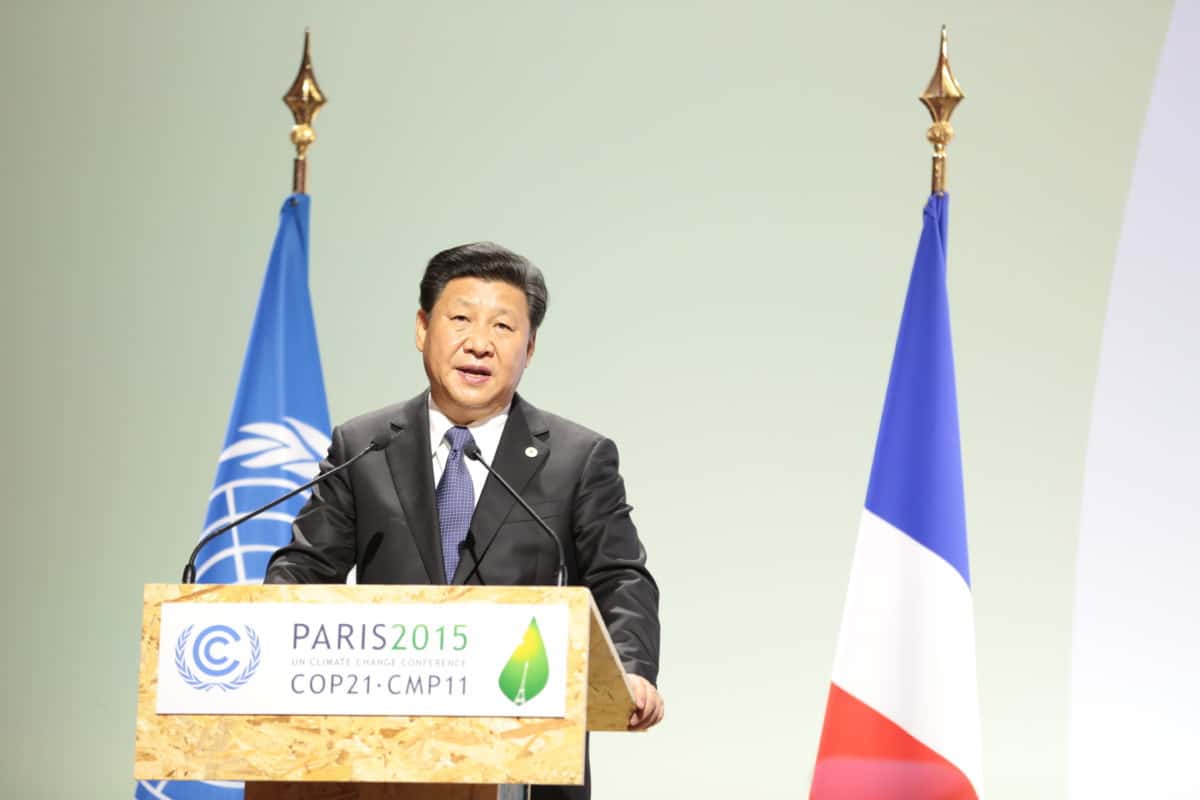Good evening. Evergrande’s Xu Jiayin and Alibaba’s Jack Ma frequently get mentioned in the same sentence when people talk about China’s recent crackdown on the private sector. But there are meaningful and fascinating differences between the two men — both in terms of how they succeeded in China and what led to their current predicaments. Our cover story this week looks closely at the rise of Xu Jiayin, and why, counterintuitively, his ability to mobilize officials in the Chinese Communist Party is considerably greater than Ma’s ever was. Elsewhere, we have a Q&A with Reinhard Bütikofer, the member of the European Parliament who was sanctioned by China earlier this year; infographics on the causes and implications of China’s energy shortage; reporting on the upcoming COP climate conference and China’s role in it; and an op-ed from Tony Saich on why Xi Jinping should be believed when he says that he intends to build China into a “modern socialist power.” If you’re not already a paid subscriber to The Wire, please sign up here.
Want this emailed directly to your inbox? Sign up to receive our free newsletter.

Game Over
Over the years, Evergrande’s Xu Jiayin has received help from China’s most influential and powerful people — including, at the start, the brother of Wen Jiabao, China’s premier. As Katrina Northrop reports this week, Xu’s guanxi — his ability to cultivate personal relationships to make deals happen — is known as the best around, and the guanxi game at the heart of modern China’s business culture is, in part, to credit for the country’s incredible economic ascent. But now, as Xu Jiayin publicly fights to save his company, the game seems to have changed on him.

The Big Picture: China’s Energy Conundrum
More than half of China’s provinces are now rationing electricity, disrupting the daily lives of tens of millions and threatening further disruption for stretched global supply chains. This week, The Wire’s infographics by Eliot Chen delve into the reasons behind the energy shortage, the choices made by China’s National Development and Reform Commission, and the global implications.
A Q&A with Reinhard Bütikofer

Reinhard Bütikofer is a German politician who has been a member of the European Parliament (MEP) since 2009. As a member of the parliament’s foreign relations committee and chair of its China delegation, he was placed under sanctions earlier this year by China. In this week’s Q&A with Andrew Peaple, he talks about the increasing coherence of Europe’s China policy, a new EU Taiwan report, and why the CAI was a slap in the face of the incoming Biden administration.
Reinhard Bütikofer
Illustration by Lauren Crow

Can COP Kickstart U.S.-China Climate Action?
Since 2017, when the Trump administration pulled out of the Paris agreement, both the U.S. and China have stalled on climate action. Now, many are hoping COP26 — the most important international meeting on climate change for six years, which is set to take place in Glasgow in less than two weeks’ time — will change that. But, as Katrina Northop reports, not much is known about China’s approach, including if Xi Jinping will even show up.

The Party and Private Business: Lessons from History
China’s private sector contributes 60 percent of GDP and provides almost 90 percent of new jobs in urban China. Surely, some say, the CCP could not be serious about reining it in. But as Harvard’s Tony Saich argues in this week’s op-ed, Xi Jinping should be believed when he says that he intends to build China into a “modern socialist power.” And Saich offers the lessons from history as his proof.
Subscribe today for unlimited access, starting at only $19 a month.



